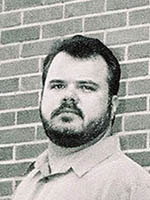Here I am again after another prolonged absence. I apologize, faithful readers. I hope you both will find it in your heart to forgive me.
My last entry is so topical, so embarrassingly so, that I need to get something else up.
So here are some thoughts.
I, like so many others, have fallen victim to
Facebook hackers. What usually happens is that we get a message from one of our "friends" that asks us to follow a link. How they encourage you to follow a link varies and can be quite ingenious. My message, for example, stated that someone had posted a hilarious video of me that could be seen at this link. Of course, I was flooded with all of the horrifically embarrassing possibilities, and I clicked the link immediately to check the damage.
In reality, clicking on this link sent the same type of message to some or all of my
Facebook friends. These friends are safe unless they actually click on the link like I did, whereupon they are potentially infected with a virus. Some people (the smart ones, ones that--perhaps--would never allow themselves to be recorded in horrifically embarrassing situations) do not click on the link. Others do click, and they fall subject to the same problem that I had.
So, to recap, one person is infected and spreads the infection to his or her friends who in turn infect their friends. It reminds me a lot of graduate school in this way.
What I've been struck with in this process has been the degree to which people (against all logic) are scrambling to place blame somewhere other than themselves. I see messages like "Don't blame me everyone! This thing started with
[insert name of friend]. I didn't send it."
Of course you sent it!
You sent it the exact same way that the person sent it to you. Your friend clicked on something he or she shouldn't have. Then you did the same thing. If you didn't click, you wouldn't have to apologize to your friends. From my point of view, both users are equally culpable. Logic dictates that if you blame your "sender," then you should accept full blame with your "
sendees."
But what is logic in human affairs?
I guess I understand the need to feel indignant. I suppose it's like being on the receiving end of a venereal disease. One doesn't see oneself in the long line of unfortunate
infectees, all of whom became so in the same basely carnal way. We don't think of ourselves that way, as one in a long line of anything. We are each the central object in a universe designed to respond to our own needs and desires, our triumphs and heartbreaks.
It is why we have such difficulty imagining our own death, the notion that there could be a world without us, the unpleasant knowledge that--at bottom--we shed our mortal coil just like everyone else and that the world, the universe, goes on largely as it did before. What a concept.
On the bright side, we can find ourselves being very angry (justifiably or not) with those we haven't spoken to in the real world for years. Just another way the digital world can bring us closer.
In the meantime, keep a syringe of
cyber-
penicillin nearby.






